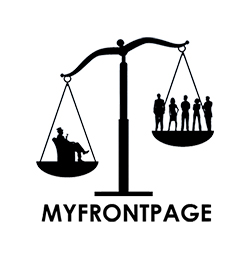UNITED STATES: 20 November 2023, In the relentless ascent of the nation’s total wealth towards the upper echelons, an ominous trend emerges – a growing influence that threatens the very core of US politics. The 2020 presidential election cycle saw an unprecedented $14 billion flow into the coffers of federal candidates, party committees, and Super PACs, marking a doubling from the $7 billion expended in the 2016 cycle. As the 2024 election looms, projections indicate an even more staggering sum.
However, rather than fortifying the foundations of US democracy, this influx of money appears to be fostering the rise of Trumpism and neofascism. There’s a discernible logic to this apparent paradox. As wealth consolidates at the summit, those who possess it harbor rational fears that democratic majorities might enact measures such as higher taxes, stringent regulations covering everything from trade to climate change, anti-monopoly laws, pro-union initiatives, and price controls, all of which could potentially erode their fortunes.
In response, the affluent are channeling an increasing portion of their wealth into supporting candidates diametrically opposed to democratic principles. Donald Trump, now openly embracing neofascist rhetoric, finds himself bolstered by the backing of prominent billionaires. On Veterans Day, he publicly vowed to root out perceived threats, labeling them as communists, Marxists, fascists, and radical-left thugs.
The financing behind this shift is not inconspicuous. While Trump’s grassroots base contributes modest sums, the substantial financial support emanates from some of the wealthiest individuals in the country. Phil Ruffin, the 88-year-old casino magnate with a net worth of $3.4 billion, has made multiple $1 million donations. Charles Kushner, real estate mogul and father of Jared Kushner, contributed $1 million in June, representing a fraction of his family’s $1.8 billion net worth. Robert “Woody” Johnson, with a net worth of $3.7 billion, also pitched in $1 million in April.
Yet, Trump is not the sole beneficiary of this financial largesse. Nikki Haley, considered more moderate only in contrast to Trump’s overt neofascism, frames Biden’s agenda as socialist in her campaign launch. Despite brief criticisms of Trump’s actions, she has defended him and garnered support from influential billionaires such as Stanley Druckenmiller, Eric LeVine, and even JPMorgan Chase’s CEO, Jamie Dimon.
The trend extends beyond Trump, as other Trumpist Republicans attract significant financial support. Peter Thiel, the multibillionaire tech financier, contributed over $35 million to 16 federal-level Republican candidates in the 2022 campaign cycle. Elon Musk, while not a major financial contributor, wields considerable influence through his megaphone, using it to align with neofascist sentiments.
This surge in financial backing from the affluent highlights a disturbing reality – democracy is endangered when capitalism and its moneyed interests wield disproportionate power. Trump’s neofascism, and the tacit support from today’s Republican party, finds resonance among some of the wealthiest individuals in the US.
The question arises: what is the alternative? A robust pro-democracy movement must emerge, challenging the concentration of wealth, exorbitant CEO pay packages, and the overpowering influence of the financial sector. Advocating for higher taxes on the wealthy, including a wealth tax, becomes imperative to finance essential public services such as Medicare for all, affordable housing, and accessible childcare and eldercare.
To counter the neofascist undercurrents threatening the democratic fabric, a vocal and unequivocal stance against concentrated wealth is essential. Naming the affluent interests backing neofascism, elucidating their motivations, and mobilizing the public to stand against their agenda is crucial in the lead-up to the 2024 election. Biden and the Democrats must take up this mantle, articulating a vision that champions democracy over the encroaching shadows of wealth.
for all, affordable housing, and accessible childcare and eldercare.
To counter the encroaching neofascist undercurrents threatening the democratic fabric, a vocal and unequivocal stance against concentrated wealth is imperative. Naming the affluent interests backing neofascism, elucidating their motivations, and mobilizing the public to stand against their agenda is critical in the lead-up to the 2024 election. Biden and the Democrats must seize this moment, articulating a vision that champions democracy over the looming shadows of wealth.
Yet, the struggle against the rising tide of neofascism extends beyond a mere political battle; it is a societal reckoning. The alternative narrative, one that upholds the principles of democracy, requires a collective effort to dismantle the entrenched structures that perpetuate inequality. It demands a reevaluation of the nexus between wealth and political influence, challenging the very foundations upon which the edifice of neofascism seeks to thrive.
This necessitates a paradigm shift in public discourse – a reawakening to the values that underpin a healthy democracy. The pro-democracy movement must be more than a reaction; it should evolve into a proactive force that dismantles the narratives of fear and division propagated by neofascist ideologies. It is a call for unity against the backdrop of growing disparity and an affirmation that the strength of a nation lies in the well-being of all its citizens.
The battle against neofascism isn’t confined to electoral cycles; it extends into the corridors of corporate power. The titans of industry, who have thus far been complicit in fueling the flames of neofascism, must be held accountable. Shareholders, employees, and consumers alike must demand ethical practices, transparency, and a commitment to the greater good. The alliance between wealth and power should be dismantled, paving the way for a more equitable distribution of resources.
At its core, the fight for democracy is a fight against the corrosive influence of money in politics. It requires systemic reforms that limit the sway of billionaires and corporate entities over political processes. Campaign finance reform, lobbying restrictions, and transparency measures are indispensable tools in this battle. Only by mitigating the undue influence of money can the democratic ideals of representation and accountability be preserved.
The alternative path is clear – a vibrant democracy that rejects the overbearing influence of concentrated wealth. It is a democracy where the voice of every citizen, irrespective of economic status, is not only heard but holds genuine weight. This vision necessitates a commitment to progressive policies that address the root causes of social and economic disparities.
Biden and the Democrats stand at a crossroads – they must champion this alternative vision with unwavering commitment. The road ahead is fraught with challenges, but the stakes are too high to falter. The 2024 election is not just a political contest; it is a referendum on the very soul of the nation. It is an opportunity for the American people to choose a future where democracy triumphs over the allure of neofascism, where the collective will of the people prevails over the concentrated power of the elite.
In the face of mounting challenges, the call for democracy must resonate louder than the siren song of wealth-fueled neofascism. It is a call to action that transcends political affiliations, socio-economic backgrounds, and individual interests. The battle for democracy is a collective endeavor that requires the active participation of every citizen who believes in the enduring principles upon which the nation was founded.
As the political landscape evolves and the contours of the 2024 election take shape, the choice becomes clear – a future where democracy thrives as a beacon of hope or one where the shadows of neofascism cast a long and dark pall over the nation. The responsibility rests not only with the elected leaders but with every citizen to uphold the values that form the bedrock of a resilient and vibrant democracy.












